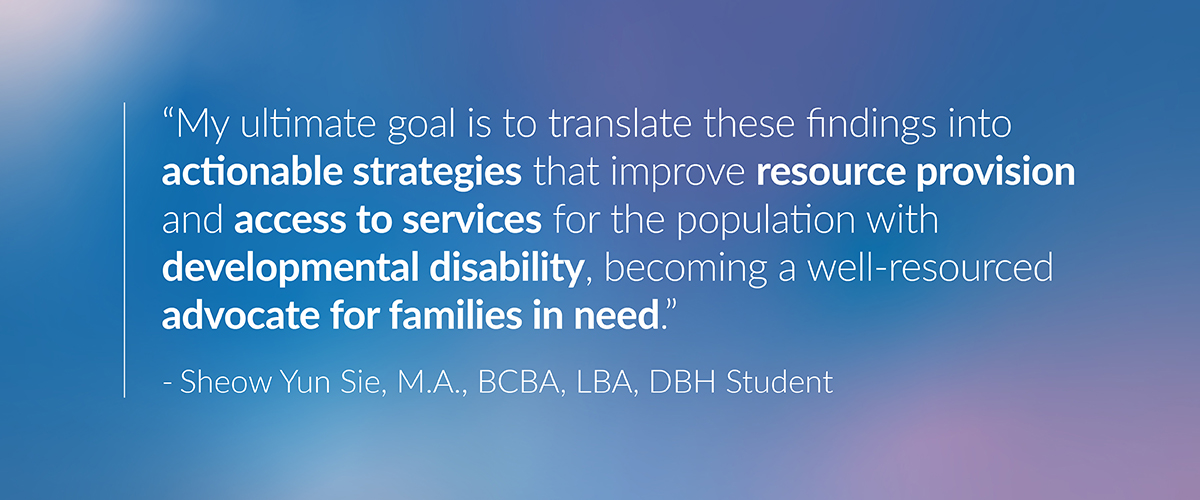
DBH Student, Sheow Yun Sie, Leverages Behavioral Health Expertise to Create Meaningful Change
As a behavior analyst and research coordinator at the Stress in Pregnancy Lab at City University of New York, Queens College, Sheow Yun Sie, M.A., BCBA, LBA, and Doctor of Behavioral Health (DBH) student at Cummings Graduate Institute for Behavioral Health Studies, is conducting groundbreaking research on how environmental and psychological stress impact child development and mental health. Her work examines the combined effects of external factors, such as climate disasters, and internal stressors, such as maternal mental health, on early childhood outcomes.
“My research investigates the combined effects of external and internal stressors on child development and mental health,” she explains. “I’m looking at how things like prenatal exposure to climate disasters (like Superstorm Sandy) and environmental factors (such as housing quality and access to green spaces) affect early childhood psychopathology.”
Her research also examines deeply personal and pressing family-level influences. “I explore the influence of internal stressors, including postnatal maternal suicidal ideation, prenatal maternal cannabis exposure, and familial stressors like parental and maternal stress during events like COVID-19, and how these affect a child’s cognitive, emotional, and behavioral development.”
For Sheow Yun Sie, this work isn’t just academic, it’s personal. “This research is deeply personal to me because my son’s autism diagnosis showed me the immense need to understand developmental issues and support families,” she shares. “My work allows me to contribute knowledge that directly benefits families like mine, helping to identify risk factors and potential interventions early on.”
The DBH program at CGI has played a crucial role in advancing this work.
“The DBH program has significantly supported and influenced my research approach by providing a framework that deepens my understanding and operationalizes my ideas into practice,” she says. “The program will provide the formal training I need to translate my experiences and interests into impactful research contributions.”
As her research continues to evolve, Sheow Yun Sie hopes to make a lasting contribution to the field of integrated care and behavioral health. “Specifically, my work on the effects of prenatal exposure to climate disasters and neighborhood disparities will inform public health policies and interventions, enabling earlier identification of risk factors and biomarkers to prevent developmental issues.”
Ultimately, she envisions her work driving real change. “My ultimate goal is to translate these findings into actionable strategies that improve resource provision and access to services for the population with developmental disability, becoming a well-resourced advocate for families in need.”





























